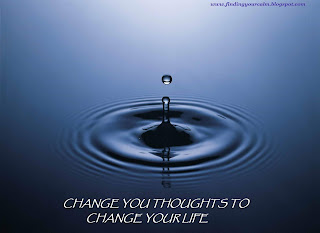 Do you ever wish you had something someone else has?
Do you ever wish you had something someone else has?
Their social finesse? Their ease with people?
Their job? Their car? Their lifestyle?
Or do you wish your partner was more like theirs?
Jealousy and Envy appears in many forms: romantic
situations, friendships, and work. It’s a feeling of discontent or resentful
longing for someone else's possessions, qualities, or luck, coupled with a desire
to those things. But most importantly it is created by a feeling of lack.
For me jealousy and envy shows up mostly in friendship. I’ll
wonder why someone is friends with another and not me; why they have what
appears to be a closer friendship with that person than I do. I will spend an
abnormal amount of time focusing on it, wondering what that person has that I
don’t.
The basis of all jealousy and envy is insecurity in oneself,
and lack of confidence that you have what another has, or are able to attain
what another has, whether material or emotional.
"Envy is the art of counting another’s blessings instead of your own." -
Harold Coffin.
When I feel this emotion I ask myself what is it that I
think I’m lacking, or feel is missing; what is it that I seek?
For example, if my friends see a lot of each other and
appear to interact more, then I need to be pro-active and step up; make more
contact, socialise and engage with them more. Or I may find I already have what
I think is lacking in another friendship, so I focus on that friend and
reassure myself that I am capable of having the same kind of friendship.
I take action to counter those feelings. I look at what I DO
have and act on that. I also remind myself that we are all different and all
have our own gifts.
For me personally, I recognise that the friendship they have
with each other is as valuable as the friendship I have with them. I remind myself
what good things I bring to my friendships: loyalty, trust, no judgement, and
reliability among other things and reassure myself that way.
"Envy is a symptom of lack of appreciation of your own uniqueness and
self-worth. Each of us has something to give that no one else has." - Elizabeth
O’Connor
My feeling of insecurity about my self-worth and value within
my friendships also sets off another negative emotion: Paranoia.
Paranoia feeds off negative thought processes based on insecurities
within ourselves. It is an escalation of these negative thoughts about
ourselves which can leave us unable to function around other people, or in social
settings.
Mine became so great I could not enjoy an evening out. I
would convince myself that others don’t really like me or that I didn’t belong.
I would tell myself I shouldn’t be there. I would convince myself that others were
talking about me behind my back, and if I didn’t hear from others I assumed it was
because they didn’t like me or want to be my friend. In the end it caused me
to cut off from my group of friends for three years.
"Avoid destructive thinking. Improper negative thoughts sink people. A
ship can sail around the world many, many times, but just let enough water get
into the ship and it will sink. Just so with the human mind: Let enough
negative thoughts or improper thoughts get into the human mind and the person
sinks just like a ship." - Alfred A. Montapert
But what I needed to remember was something Dr.Phil has said on his show many times; ‘What makes you so important that you think other people are talking
about you?’ By this he means people have their own lives, their own issues,
and their own stuff going on. Many of them are too busy with themselves to be
thinking about me. They wouldn’t have had a clue what I was thinking or
feeling, or what kind of dialogue was going on inside my head - dialogue that
was way off.
A friend once said to me; ‘The only person who thinks you are neurotic is you.’
which showed me how tainted my own view of myself was, and
how it was me saying it to myself - no one else.
Much of this kind of thinking comes from a lack of self-confidence,
which is caused by not thinking you are enough, and not believing in your own
self-worth. This may have started with other people making you feel bad about
who you are: parents not being supportive or praising, or being bullied at
school. And if it gets repeated enough, you start to say it to yourself
internally and it becomes part of your internal dialogue - and you start using
it against yourself.
"Do not allow negative thoughts to enter your mind for they are the
weeds that strangle confidence." - Bruce Lee
As previously mentioned in How to Stop Your NegativeInternal Dialogue the only way to stop it is to catch those negative thoughts
and question their validity, and then update them with what is correct.
Insecurities can show up in many areas of life, some are
more apparent than others, but it is by recognising them and acknowledging them
that we can change them.
Building your own inner security is a long process and one I
will revisit in future blog posts, but the starting point is stopping the
negative internal dialogue about yourself, and/or other people, and look at what you bring rather than what you
lack.
"What we are today comes from our thoughts of yesterday, and our present
thoughts build our life of tomorrow. Our life is the creation of our mind. -
Buddha"



